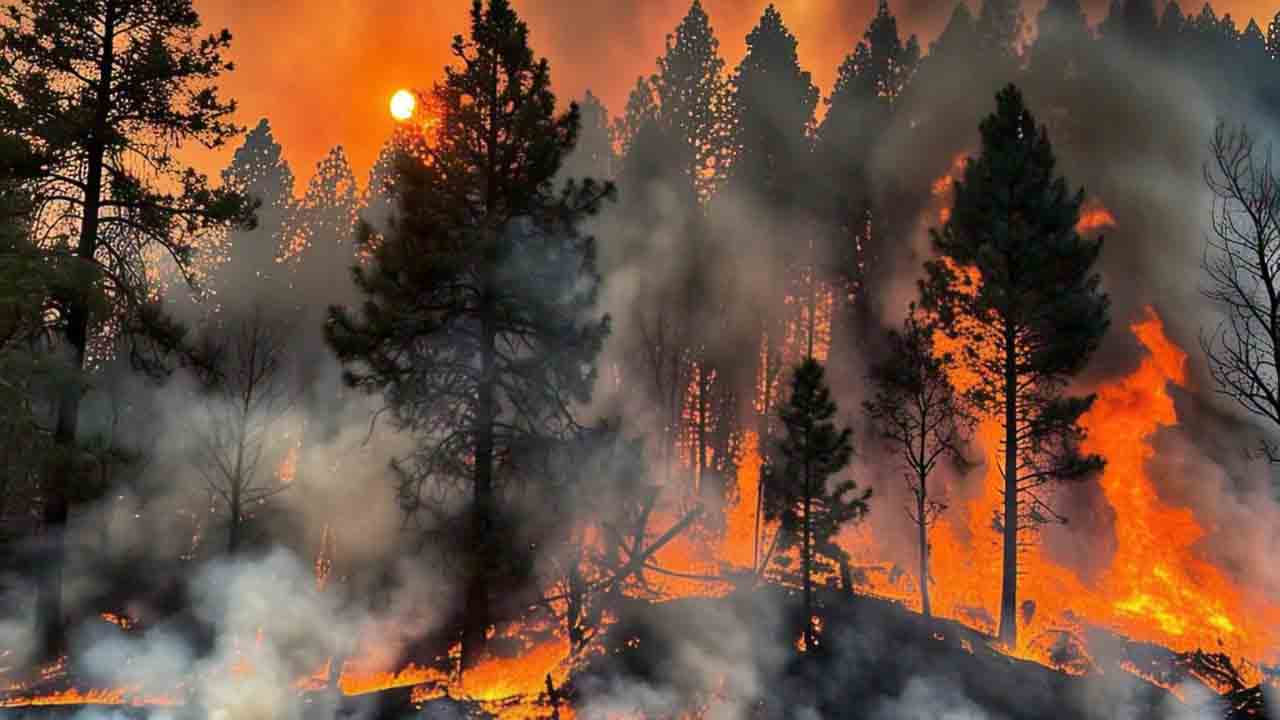
Arcadiadaily – The climate emergency is no longer a distant threat it is a present reality. Across the globe, wildfires, floods, and hurricanes are intensifying in both frequency and severity, devastating communities and ecosystems. As climate change accelerates, its impact is becoming impossible to ignore. Governments, scientists, and activists are increasingly sounding the alarm, calling for immediate action to address this escalating environmental crisis before it spirals further out of control.
The climate emergency is amplifying extreme weather events, with wildfires and flooding becoming more destructive and widespread. In regions like California, Greece, and Australia, wildfires have become an annual, uncontrollable threat. These fires, often fueled by higher temperatures and prolonged droughts, not only destroy homes and forests but also release vast amounts of carbon dioxide into the atmosphere, further exacerbating the climate crisis.
Meanwhile, parts of South Asia, Europe, and the United States have faced catastrophic flooding events. The combination of heavier rainfall, rising sea levels, and increased storm intensity has left cities submerged, displacing millions of people. In 2021, the floods in Germany and China claimed hundreds of lives and caused billions of dollars in damage. Experts warn that these types of extreme weather events will only become more common unless significant measures are taken to mitigate climate change.
Another alarming consequence of the climate emergency is the rising intensity of hurricanes and tropical storms. Warmer ocean temperatures provide more energy for storms, resulting in stronger hurricanes that can wreak havoc on coastal cities. In 2020, the Atlantic hurricane season broke records, with an unprecedented number of storms forming, causing widespread destruction in the Caribbean, the Gulf of Mexico, and the southeastern United States.
These powerful storms are not only more frequent but also more destructive. Hurricane Katrina in 2005 and Hurricane Maria in 2017 are just two examples of how catastrophic these events can be. As sea levels continue to rise, many low-lying coastal regions face the existential threat of being submerged. Making the urgency of addressing the climate emergency even clearer.
“Maximizing Diesel Power: The Benefits of ECU Remapping”
The climate emergency has triggered widespread calls for urgent action. Governments, activists, and citizens alike are demanding immediate steps to reduce greenhouse gas emissions. Transition to renewable energy, and prepare for the impacts of climate change. International conferences like COP26 have brought attention to the issue, but critics argue that progress is too slow. While many countries have made pledges to reach net-zero emissions by mid-century. Experts warn that the window for effective action is rapidly closing.
Activists, particularly young leaders like Greta Thunberg, continue to push for bolder measures. They argue that the global response has been inadequate and that nations must prioritize climate action in every aspect of policy. From energy production to transportation to agriculture. As the world faces increasingly frequent and intense natural disasters. The urgency of addressing the climate emergency is clearer than ever.
The climate emergency is no longer a looming threat its impacts are being felt today, in the form of devastating wildfires, floods, and hurricanes. If we are to protect future generations and the planet, decisive and immediate action is needed. The window for meaningful change is shrinking, and only by acting now can we hope to avert the worst consequences of this global crisis.
“The Fusion of Interactive Storytelling and Video Game Design”